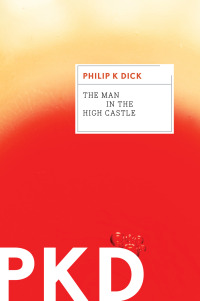The Early Science Fiction of Philip K. Dick (vol. 2) by Philip K. Dick
 Wednesday, June 1, 2016 at 10:23AM
Wednesday, June 1, 2016 at 10:23AM 
Published by Dover Publications on February 17, 2016
In his early years, the quality of Philip K. Dick’s ideas often exceeded the quality of his prose. He churned out fiction quickly, eking out a living as a paid-by-the-word writer who didn’t have time to rewrite and polish. I therefore expected these stories to be rough (like some of his early novels) and was pleasantly surprised to find that only a couple of the stories show evidence of hasty writing.
This volume is worth acquiring for “The Turning Wheel,” a sendup of various religious beliefs that takes place in a post-apocalyptic future that is class-based and Asian-centric. The story pokes fun at religions that brand pleasure as sinful, but it’s particularly noteworthy for its references to a revered individual named Elron Hu, a name that is suspiciously similar to L. Ron Hubbard, the science fiction writer who founded an imaginary but lucrative religion that has been embraced by Hollywood.
Most of the other stories are also entertaining, although none are as mind-blowing as his later work. Most follow the pattern of developing a science fiction theme and then giving it a surprise twist at the end.
“Prominent Author” deals with an ordinary worker who is testing a form of instantaneous transportation from his residential community in Pennsylvania to his office in downtown New York City. Taking the trip gives him a glimpse of another universe and the feeling that, by interacting with it, he may be changing it. The nature of the universe and the worker’s impact on it are the surprises that Dick delivers at the end. While this is a story that could have been fleshed out in greater detail, it’s a classic example of Dick’s clever imagination.
“Small Town” is about a model railroad enthusiast who has spent years making an exact replica of the town he hates -- until he decides to turn it into a town he can love. The story might be a bit predictable, but it would have been a good Twilight Zone episode.
In “Exhibit Piece,” a twentieth century museum exhibit becomes the reality of the man who curates it. The story ties into some current theories about the nature of reality, but those theories had not yet been popularized when Dick played with the idea. The ending has a twist that again would have made this a fun Twilight Zone episode.
Former Terrans who now consider themselves a “superior mutant race” are convinced that their colony is subjected to constant attacks by an unknown enemy. “Shell Game” considers how paranoia destroys the paranoid and how the paranoid destroy everyone else.
“Adjustment Team” is one of several works by Dick that inspired Hollywood films -- in this case, The Adjustment Bureau. The story is quite short, providing only the starting point for a movie, but it introduces a theme to which Dick often returned -- the nature (and manipulation) of reality.
“Meddler” is a time travel story. Two observations of the same point in the future reveal vastly different results. A man from the present is sent to the future to find out what went wrong. The twist at the end again has a Twilight Zone feel.
“Progeny” is about a future in which parents aren’t given the opportunity to mess up their kids. Instead, children are raised by robots, a fact that is upsetting to a father who has been off planet for some time. The ending is deliberately ambiguous and a little chilling.
“Upon the Dull Earth” is a quasi-supernatural story about a woman who “crosses over” and regrets her decision. Crossing back turns out to be a bad thing for human existence. The story has some of the religious overtones of Dick’s later work, but it’s the weakest story in the volume.
“Foster, You’re Dead” is a pointed criticism of the military-industrial complex. The characters in the story are fueled by the same paranoia that drives modern-day preppers (along with the desire to buy cool prepper gear). In Dick’s story, the desire (and peer pressure) is to buy cool bomb shelters. The story effectively conveys the idea that the threat of disaster is more often a marketing gimmick than an actual threat.
“Human Is” is an “alien mind takes over human body” story. Dick gives it a predictable but fun twist.
This isn’t by any means a “Best of” collection but it isn’t meant to be. For a PKD completist, it is an essential acquisition. For a reader who is new to PKD, I would recommend a “Best of” collection, but I suspect most science fiction fans would enjoy these stories, even if Dick’s earliest work wasn’t always his best work.
RECOMMENDED
